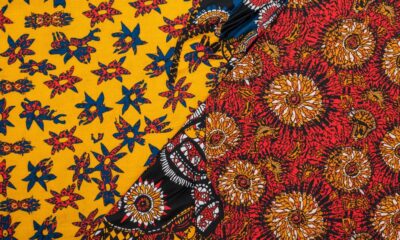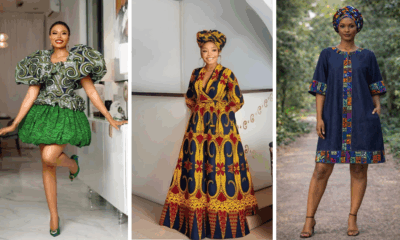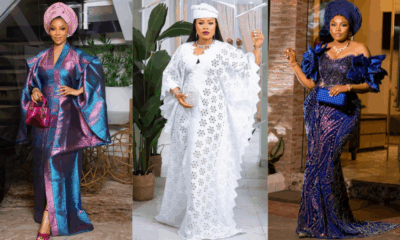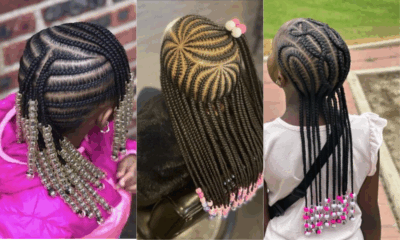WEDDING
A Guide to Hosting an African-Themed Bridal Shower

In many African cultures, bridal showers are deeply rooted in tradition, serving as a rite of passage for brides-to-be. However, the lessons taught in these gatherings often reinforce traditional gender roles and expectations, which can perpetuate inequality and put women at risk.
As we celebrate the union of two individuals, it’s crucial to rethink the narratives and skills we impart to brides during these events. With roots deeply ingrained in community, celebration, and rich customs, an African-themed bridal shower promises an unforgettable experience for the bride-to-be and her cherished guests.


African Bridal Robe: Source Fobsyafricanshop
Why is bridal shower Important
The concept of celebrating the bride-to-be with gifts and well-wishes aligns harmoniously with African traditions of communal support and unity. In many African cultures, weddings are grand affairs, marked by colorful ceremonies and joyful gatherings. The bridal shower, then, becomes a microcosm of this larger celebration, a moment for the bride to be surrounded by the love and support of her closest female friends and family members. Here are some of the things brides get to learn during this event;

Bridesmaids Ankara Robes: Source Annsklodin
Domestic Skills:
One of the primary focuses of African bridal showers is the teaching of domestic skills such as cooking, cleaning, and household management. While these skills are undoubtedly valuable, the emphasis placed on them can reinforce the idea that a woman’s role is primarily within the home, perpetuating traditional gender roles.

African Bridal Robe: Source Gochiafrica
Subservience and Submission:
Another common theme in African bridal showers is the emphasis on the bride’s role as submissive and obedient to her husband. Lessons often revolve around maintaining a peaceful and harmonious home, which can place undue pressure on women to prioritize their husband’s needs over their own and can even lead to situations of abuse.
Sexual Expectations:
Brides are often taught how to manage their husbands’ expectations, including how to navigate issues such as sexual intimacy and fidelity. While open communication about these topics is important in any relationship, the way these lessons are framed can reinforce harmful stereotypes about women’s roles in sexual relationships.


African Bridal Robe: Source Fobsyafricanshop
Financial Management:
Brides may also receive instruction on managing household finances, with an emphasis on prioritizing their husband’s needs. While it’s important for couples to have a shared understanding of financial management, this should not come at the expense of women’s economic autonomy.
Etiquette and Grooming:
Lessons on etiquette and grooming are also common in African bridal showers, with the focus often being on how a woman should dress and behave to please her husband. While there is nothing wrong with taking pride in one’s appearance, these lessons can reinforce narrow and unrealistic standards of beauty and behavior.

Bridesmaids Ankara Robes: Source Annsklodin
HIV/AIDS Awareness:
In some cases, brides may receive information about HIV/AIDS prevention, but this is often framed in terms of the bride’s responsibility to protect her husband rather than prioritizing her own health and well-being.
WHAT TO PLAN FOR AN AMAIZING AFROCENTRIC THEMED BRIDAL SHOWER
Who Attends:
In keeping with tradition, an African-themed bridal shower is an all-female affair. Invite the bride’s aunts, grandmothers, sisters, and friends to join in the festivities. Encourage attendees to embrace African-inspired attire, from vibrant Ankara prints to elegant head wraps, adding to the ambiance of the occasion.


African Bridal Robe: Source Fobsyafricanshop
Timing:
Planning is key to a successful bridal shower. Aim to schedule the event four to six weeks before the wedding, allowing ample time for invitations and coordination. Consider the bride’s schedule and the availability of key guests when selecting the date.
Dress Code:
Embrace the beauty of African fashion by encouraging guests to dress in traditional or African-inspired attire. Whether it’s a flowing kaftan, a bold dashiki, or a chic gele, the dress code sets the tone for an immersive cultural experience.
ALSO READ: 20 Fabulous African Wedding Suits for Men

African Bridal Robe: Source Adorasintimates
Favors:
Extend the spirit of the celebration with thoughtful African-inspired favors. Consider small gifts such as intricately designed beaded jewelry, mini kente cloth pouches filled with traditional spices, or handcrafted soap infused with indigenous botanicals. These tokens serve as meaningful reminders of a joyous occasion shared with loved ones.
Games and Activities:
Infuse the bridal shower with laughter and camaraderie through culturally inspired games and activities. Test guests’ knowledge of African traditions with a “Cultural Trivia” game or engage in a lively dance-off to the beats of Afrobeat music. For a sentimental touch, create a communal art piece where guests contribute messages of love and wisdom for the bride-to-be.

African Bridal Robe: Source Fobsyafricanshop
Food and Drinks:
Delight guests’ taste buds with a tantalizing array of African cuisine and refreshing beverages. From savory jollof rice and flavorful suya skewers to sweet treats like chin chin and puff puff, let the flavors of Africa take center stage. Quench thirst with tropical fruit juices, hibiscus-infused cocktails, or refreshing palm wine, adding an authentic touch to the festivities.
Gifts:
Show appreciation for the bride-to-be with gifts that reflect the richness of African culture. Consider gifting her with a beautifully crafted traditional headpiece, a set of handwoven baskets for her home, or a vibrant Ankara fabric to incorporate into her wedding ensemble. Each gift serves as a token of love and support as she embarks on this new chapter of her life.


African Bridal Robe: Source Fobsyafricanshop
Global Prevalence:
While bridal showers may have originated in Western cultures, the spirit of celebrating love and unity transcends borders. Across the globe, similar traditions are observed, each with its own unique customs and rituals. From the Kitchen Tea in Australia to the Mehndi ceremonies in India, these celebrations serve as reminders of the universal joy found in coming together to honor love and commitment.

African Bridal Robe: Source Adorasintimates
Afronista Spotlight: Osas Ighodaro A Star with a Heart
Conclusion
African bridal showers play a significant role in preparing women for marriage, but they can also perpetuate harmful gender stereotypes and reinforce traditional gender roles. It is essential to rethink the lessons taught at these events to ensure that they promote gender equality and empower women to make informed choices about their lives. African-themed bridal shower, you not only celebrate the bride-to-be but also pay homage to the rich tapestry of African culture and tradition. From the vibrant decor to the sumptuous cuisine, every detail is an expression of love, community, and the enduring bonds of friendship. So, gather your loved ones, immerse yourselves in the warmth of African hospitality, and create memories that will last a lifetime.
WEDDING
Complete Your Look with These 5 Must-Have African Wedding Accessories
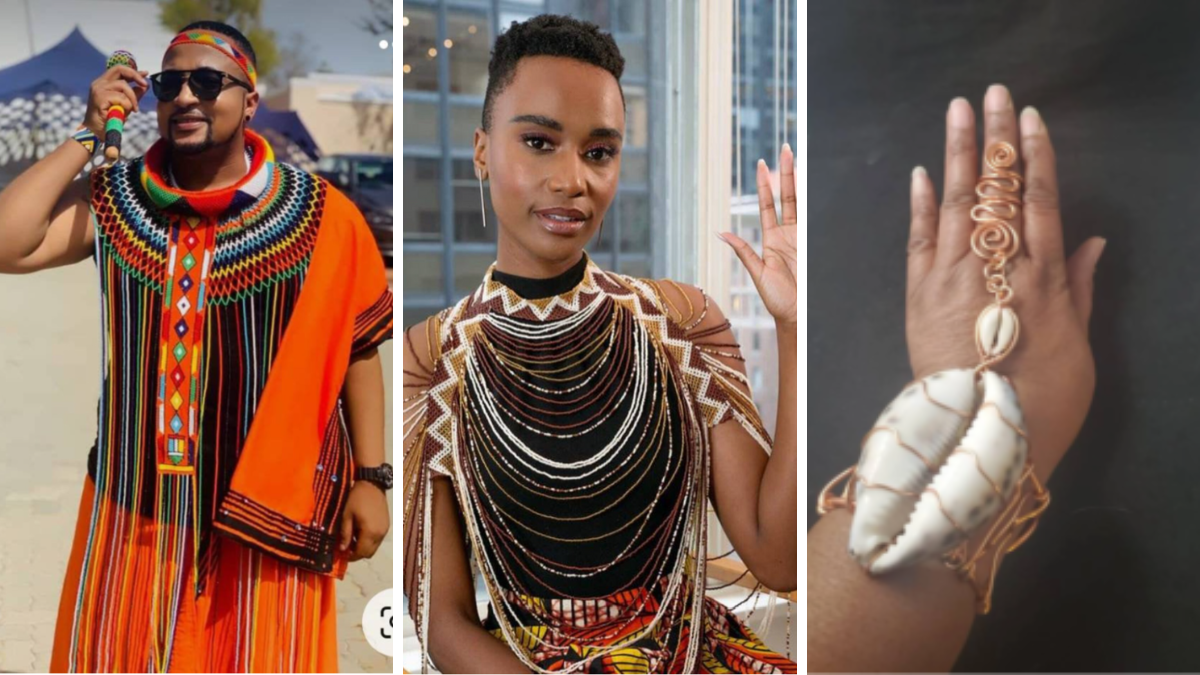
When it comes to African Wedding Accessories, the intricate details and unique colors of traditional attire steal the show. Elevating your ensemble with the perfect accessories is key to embracing the rich cultural heritage and making a statement on your special day. From beads to headpieces, these must-have African wedding accessories will complete your look with elegance and style:
1. Beadwork Brilliance
Beads hold immense cultural significance in African Wedding Accessories. Incorporate them into your look through:
- Beaded Necklaces: Adorn your neckline with vibrant, intricately crafted beadwork. Choose from traditional patterns and colors that complement your attire.
- Beaded Bracelets: Stack beaded bracelets on your wrists for a pop of color and cultural significance. Mix and match different sizes and designs for a personalized touch.
- Beaded Anklets: Accentuate your footwear with beaded anklets that beautifully frame your feet and add a touch of traditional elegance.
ALSO READ: 20 Best Afrocentric Kids’ Outfit Ideas for Every Occasion

2. Headpieces That Speak Volumes
The crowning glory of your wedding ensemble often lies in the headpiece. Embrace the beauty of African Wedding Accessories:
- Gele: This elaborate headwrap is a symbol of elegance and sophistication. Experiment with various fabrics and styles to find the perfect Gele that complements your outfit.
- Beaded Headbands: Infuse your hairstyle with a beaded headband, a timeless accessory that exudes cultural heritage. Opt for intricate beadwork that stands out and adds a regal touch to your look.
3. Traditional Accents
Don’t forget these essential African Wedding Accessories that complete the African wedding attire:
- Waist Beads: Worn around the waist, these beads symbolize femininity, sensuality, and cultural heritage. They’re often hidden but hold significant cultural value.
- Cowrie Shell Jewelry: Incorporate cowrie shells into your accessories, whether as earrings, necklaces, or bracelets. These shells are steeped in African tradition and add a unique, earthy touch.
4. Personalized Touches for African Wedding Accessories
Customize your African Wedding accessories to reflect your unique style and story:
- Customized Beadwork: Collaborate with local artisans to create bespoke beadwork that incorporates your initials, wedding date, or meaningful symbols, making your accessories truly one-of-a-kind.
- Family Heirlooms: Consider wearing family heirlooms passed down through generations. These pieces not only add sentimental value but also contribute to preserving cultural traditions.
5. Fusion of Modern and Traditional
Experiment with blending modern fashion elements with African Wedding Accessories:
- Beaded Clutches: Opt for a modern clutch adorned with African beadwork. This fusion of contemporary design and traditional craftsmanship adds a touch of sophistication to your ensemble.
- Innovative Headpiece Designs: Explore contemporary headpiece designs inspired by traditional elements. Experiment with unconventional shapes and styles while staying true to the essence of African heritage.
Conclusion
In conclusion, incorporating these must-have African wedding accessories—be it beads, headpieces, or traditional adornments—will undoubtedly elevate your bridal ensemble, allowing you to celebrate culture, heritage, and style on your special day. Whether you choose one standout piece or a combination of several, these African Wedding Accessories will complete your look with elegance and grace.
ALSO READ: Swanky Jerry’s Influence on African Fashion
Furthermore, by opting for Afrocentric wedding accessories, you’re not only making a sartorial statement but also supporting the artisans and craftsmen who meticulously create these pieces. It’s a way of contributing to the preservation and promotion of African culture, which is essential in a globalized world where traditions can sometimes fade into obscurity.
WEDDING
Top 5 Guidelines for Afrocentric Wedding Party Attire

Afrocentric Wedding Party Attire are vibrant celebrations that beautifully blend tradition, culture, and modern style. Ensuring that your wedding party attire reflects the essence of Afrocentric themes while maintaining elegance and cohesion is key to creating a memorable event. Here are some guidelines to help you plan the perfect Afrocentric wedding party attire.
Bridesmaids Wedding Party Attire






For Afrocentric weddings, bridesmaids’ dresses can be a wonderful expression of cultural heritage. Incorporate bold patterns, vibrant colors, and traditional fabrics such as Ankara or Kente.
Tips:
- Cultural Patterns: Choose dresses with traditional African prints that align with the wedding’s color scheme.
- Mix and Match: Encourage bridesmaids to select styles that suit their body types while staying within the chosen color palette.
- Accessories: Consider adding headwraps or African-inspired jewelry to complete the look.
Groomsmen Wedding Party Attire
Groomsmen’s attire can also reflect Afrocentric themes while remaining formal and sophisticated. Suits or tuxedos can be tailored with African fabric accents.






Tips:
- Coordinated Accents: Use matching ties, pocket squares, or vests made from traditional African fabrics.
- Footwear: Opt for comfortable yet stylish shoes, potentially incorporating African patterns or colors.
- Cultural Elements: Consider traditional garments like dashikis or agbadas for a unique and cultural touch.
Mothers of the Bride and Groom Wedding Party Attire
The mothers of the bride and groom can wear elegant Afrocentric attire that honors their role and the occasion. Dresses made from rich, colorful fabrics such as lace or Aso Oke can be both stylish and appropriate.
Tips:
- Timeless Elegance: Choose knee-length or tea-length dresses in colors that complement the wedding palette.
- Comfort and Style: Ensure the dresses are comfortable and suitable for the day’s events.
- Accessories: Incorporate headwraps, beaded necklaces, or traditional shawls to enhance the look.






Flower Girls and Ring Bearers
Flower girls and ring bearers can add a touch of charm and cultural pride to the ceremony with their Afrocentric outfits.
Tips:
- Simple Yet Stylish: Opt for simple dresses for girls in African prints and suits or slacks with African print bow ties for boys.
- Comfort is Key: Ensure the outfits are comfortable and easy for the children to move in.
- Adorable Accessories: Add flower crowns, beaded bracelets, or small sashes to their attire.
General Guidelines for the Wedding Party
When it comes to Afrocentric wedding attire, the key is to avoid anything too casual or too revealing. Dresses, skirts, blouses, jumpsuits, suits, and tuxedos can all be appropriate options depending on the wedding’s formality.



Tips:
- Unified Theme: Ensure that all members of the wedding party adhere to the Afrocentric theme while feeling confident and comfortable.
- Clear Communication: Discuss attire expectations clearly with the wedding party and provide visual guidelines or mood boards.
- Timely Fittings: Schedule fittings and complete any necessary alterations well in advance of the wedding day.
Conclusion
Creating a cohesive and culturally rich Afrocentric wedding party attire involves thoughtful planning and clear communication. By incorporating traditional fabrics, vibrant colors, and cultural elements, you can ensure that your wedding party looks stunning and feels comfortable. Following these guidelines will help you achieve a beautiful and harmonious look that celebrates African heritage and enhances the overall wedding experience.
WEDDING
Fascinating Africa’s Rich and Diverse Marriage Traditions
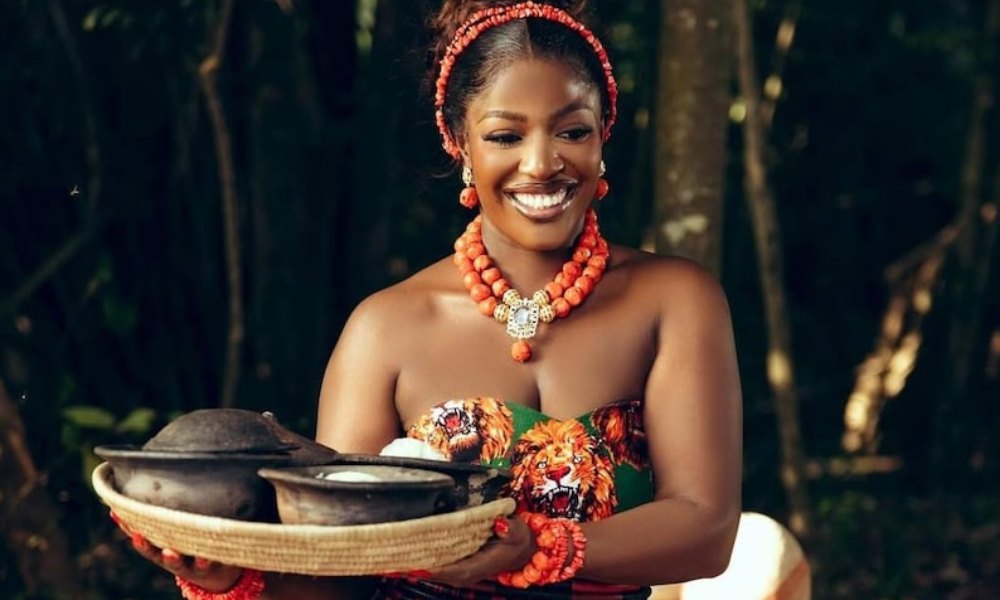
I. The Fabric of Matrimony
A. Unraveling the Misconception of a Single “Marriage Traditions”
The continent of Africa, a landmass of unparalleled cultural richness, is home to a misconception often perpetuated in global discourse, the idea of a single “African wedding.” This monolithic view fails to capture the intricate tapestry of traditions woven across 54 countries and thousands of distinct ethnic groups.
For example, Nigeria alone is home to over 250 ethnic groups, each with its own unique and deeply rooted cultural norms governing the institution of marriage. This vast diversity ensures that no single ceremony, ritual, or set of customs can represent the entirety of African matrimonial practice.
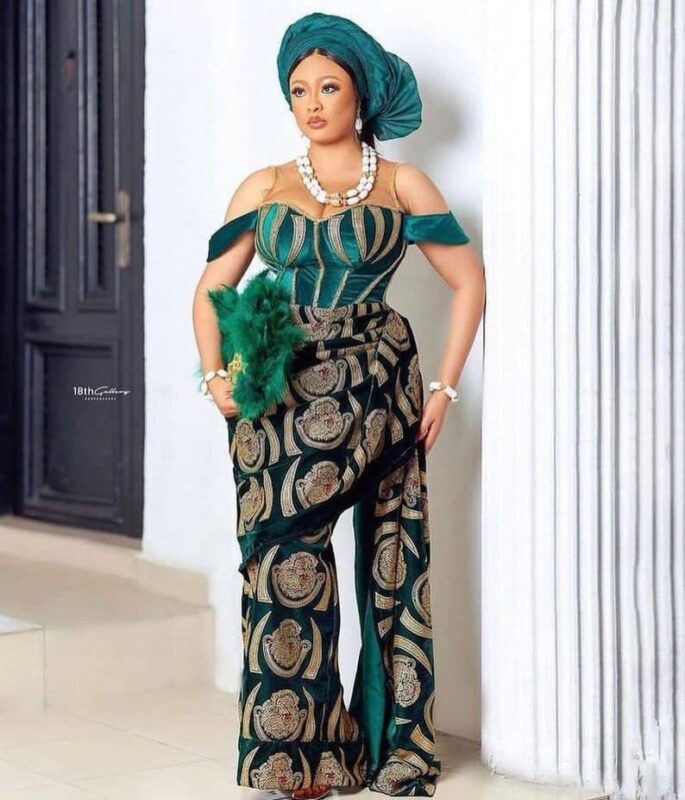
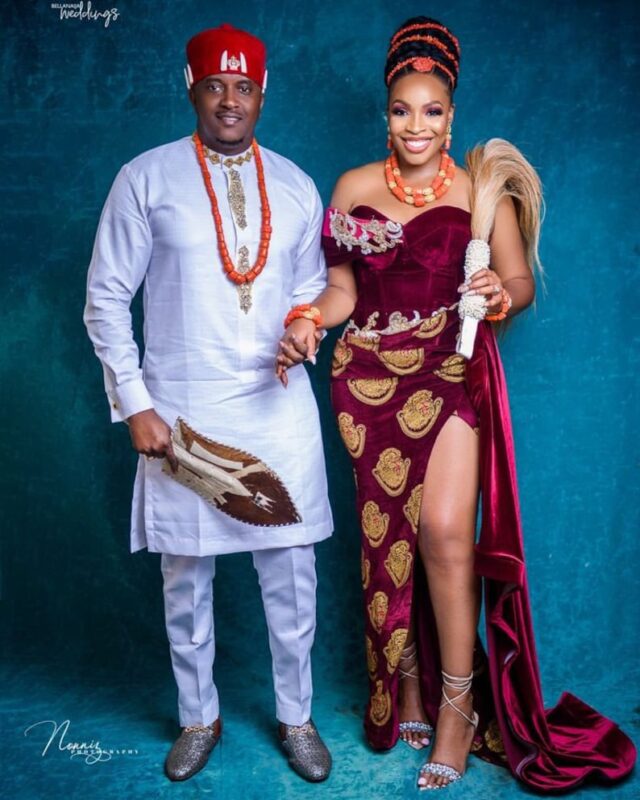
Despite this extraordinary variety, a fundamental and unifying thread runs through nearly all African cultures: marriage is not merely the union of two individuals, but a profound and binding alliance between two families and their wider communities.
This communal emphasis shapes every stage of the marriage process, from the initial negotiations to the post-ceremony rituals. The traditions are designed to formalize new kinship ties, foster mutual respect between families, and ensure the support of the entire community for the new couple, highlighting a collectivist worldview that stands in contrast to the more individualistic approaches often seen in Western societies.
B. The Central Role of Ritual and Attire
The journey to matrimony in Africa is a narrative told through a rich visual and ritualistic language. Attire, in particular, serves as a central narrative device, a form of non-verbal communication that conveys social status, lineage, and the bride and groom’s transition to a new life stage.
A garment or a headdress is more than just an outfit; it is a historical artifact, a symbol imbued with deeply held cultural beliefs that tell the story of a family and a community. The enduring nature of these traditions does not, however, preclude their evolution.
In a world shaped by globalization and urbanization, many modern African couples are creating unique hybrid ceremonies that honor their heritage while embracing contemporary ideals.
It is a common practice for a couple to hold both a traditional wedding, steeped in the customs of their ancestors, and a Western-style “white wedding” to satisfy modern legal and social expectations. This blending of ancient and modern practices demonstrates the dynamic and resilient nature of African culture, which adapts without losing its core identity.
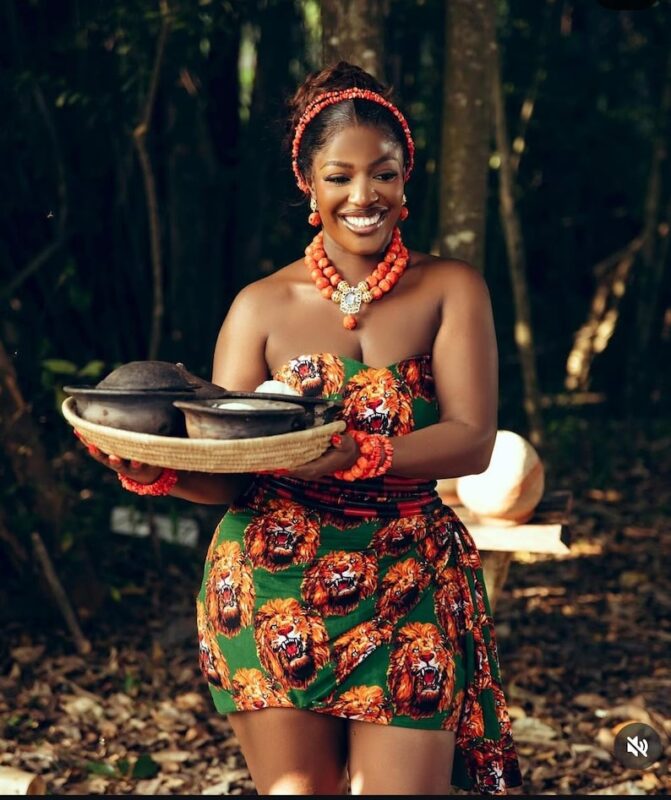
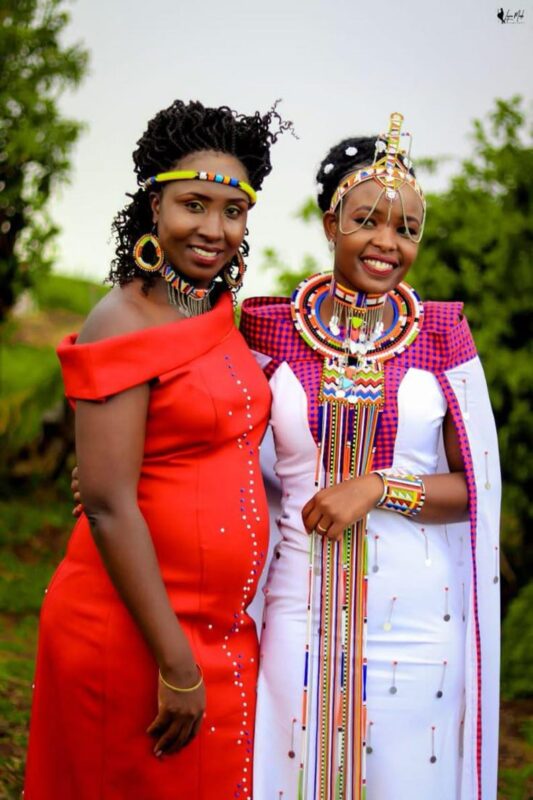
ALSO READ: Top 15 Do’s and Don’ts of Afrocentric Guest Attire
II. The Foundational Pillars of African Union
A. Bridewealth, Not Dowry: A Critical Distinction
A foundational concept in many African marriage traditions is bridewealth, a term that is frequently and incorrectly equated with the Western concept of dowry. Understanding the distinction is essential. Bridewealth, also known as “bride price” or “lobola,” is a payment or transfer of goods made by the groom or his family to the bride’s family.
This is in direct contrast to a dowry, which is a transfer of wealth from the bride’s family to the groom’s. The practice, which dates back thousands of years, is a symbolic act that solidifies the marriage alliance and legitimizes the union in the eyes of the community.
The symbolic and economic purposes of bridewealth are multifaceted. It is first and foremost a token of gratitude to the bride’s family for raising a “wonderful woman” and a gesture of respect for her upbringing and labor.
It is also an expensive pledge that demonstrates the groom’s commitment and his capacity to provide for his new family. In a traditional sense, bridewealth is also a way to formalize the transfer of sexual and reproductive rights from the bride’s family to the groom’s, ensuring that any children born from the union will belong to the husband’s lineage.
In African society, the tradition of bridewealth has evolved significantly. While it was historically paid in livestock, such as cows, goats, or sheep, the modern practice often involves money, a combination of cash and animals, or other commodities.
The amount is often negotiated by family representatives and can be influenced by the bride’s educational background and her family’s social standing, reflecting the tradition’s adaptation to modern economic realities.
ALSO READ: Can I Wear A White Dress To An African Traditional Wedding?
B. The Knocking Ceremony: A Formal Request for Kinship
Before the formal negotiations for marriage can even begin, many West African cultures observe a ritual known as the “knocking ceremony.” In Ghana, for example, this is called kokooko, which translates to “knocking on the door”.
On a prearranged night, the prospective groom and a delegation of his family members visit the bride’s home. They ceremonially “knock” on the door to seek permission to enter.
Once invited inside, the groom’s family presents a variety of gifts, which may include wine for libation, money, and kola nuts, and formally announces their intention to seek the bride’s hand in marriage.
The ceremony serves as a respectful and traditional way of initiating the marriage process, demonstrating the groom’s sincerity and good faith to the bride’s family. It is a crucial first step that must be completed before any further discussions can proceed.
In modern times, particularly within the African diaspora, this ritual has adapted. While it may no longer involve a literal “knocking on the door,” the symbolic act of gaining a family’s blessing remains a vital and respected tradition, sometimes formalized through a family dinner or even a phone call.
ALSO READ: 11 Stunning Non-traditional African Wedding Dresses
III. A Journey Across the Continent: Regional Traditions in Detail
A. West African Nuptials: The Yoruba of Nigeria
The Yoruba people, a major ethnic group in Nigeria, have one of the most elaborate and richly detailed marriage processes, known as Igbeyawo.It is a multi-stage affair that involves a meticulous series of rituals and symbolic exchanges. The process often begins with an intermediary, the
Alarina, who communicates the man’s interest to the woman and her family.Once the families agree to the union, they proceed to a formal meeting and the creation of the
Ẹrú Ìyàwó, or engagement list.This list, which is often drafted by the bride-to-be and her family, details a host of items the groom must provide for the ceremony, ranging from food items like yam and honey to jewelry and new outfits.
A central moment in the ceremony is the Idobale, where the groom and his male friends prostrate themselves fully before the bride’s family. This act, traditionally performed seven times in modern ceremonies, is a powerful display of humility, respect, and gratitude for being granted the honor of marrying their daughter. This act visually reinforces the core value that marriage is a family alliance, not just a personal choice.
Another powerful symbolic ritual is the “Tasting of the Four Elements”. During the ceremony, the couple is presented with four distinct flavors—sour, hot, bitter, and sweet—which they must taste. Each flavor represents a different stage of a shared life.
The bitter flavor, often from a lemon or vinegar, reminds them of the hardships they may face, while the sweet honey symbolizes the joys of their union. The ritual is a profound, pragmatic, and experiential vow, preparing the couple for the full reality of their commitment by having them physically confront the emotional ups and downs of married life.
Yoruba ceremonies are also a vibrant display of visual unity through the tradition of Aso-Ebi, which means “family cloth”. Both the bride’s and groom’s families, along with close friends, select and wear coordinated fabrics and designs, visually signifying their closeness and solidarity. The attire itself is a study in elegance and detail. The groom wears a grand, flowing robe known as an
agbada, with a soft, hand-woven cap called a fila. The bride, in turn, is adorned in a loose-fitting blouse (buba), a fabric wrap (iro), and an intricately sculpted head tie (gele), all cut from the hand-woven aso-oke fabric.
For the uninitiated, the “color of the day” is a subtle but clear social cue, helping to distinguish which family a guest belongs to before the two clans are officially joined in a single union.
B. Southern African Unions: The Zulu of South Africa
In Southern Africa, the Zulu people follow a distinct marriage journey that begins with the lobola negotiations and culminates in the Umabo ceremony.
Lobola is the bridewealth payment, traditionally made in cattle or their monetary equivalent, and serves as the initial, crucial step in the marriage process. The groom’s family will often write a formal letter to the bride’s family to initiate this process.
After the lobola is negotiated and paid, a Zulu couple will often hold a “white wedding,” followed by the Umabo, which is the traditional wedding ceremony held at the groom’s family home.
The Umabo is a series of rituals focused on the bride’s symbolic transition from her family to her new home. A highlight of the ceremony is the competitive “dance-off” between the families of the bride and the groom.
This ritual antagonism symbolizes the emotional tension of one family “losing” a daughter and the other “gaining” her, a moment of good-natured conflict that is resolved through communal song and dance.
During the ceremony, the groom’s family ceremonially slaughters a cow to welcome the bride into their lineage. In a poignant moment, the bride places money inside the cow’s stomach, an act that signifies her willing acceptance into her new family.
The ceremony concludes with the Ukwaba tradition, where the bride presents blankets as gifts to her new family members, including the deceased ancestors, with the living relatives receiving and publicly covering themselves with the blankets as a sign of their approval and acceptance.
Zulu bridal attire is rich with symbolism. The bride wears a traditional cow-hide skirt called an isidwaba and an iconic headdress known as an isicholo. The isicholo is far more than a decorative hat; it is a powerful public signifier, traditionally reserved for married women, that communicates her new status to the entire community and signifies her respect for her husband’s family.
Its flared, disk-like shape, often colored with a red ochre mixture, developed from a 19th-century hairstyle and symbolizes beauty and femininity. Additionally, some Zulu and Swazi brides carry a small knife pointed upwards as a symbol of their virginity. The position of the knife is changed to point downwards after the marriage is consummated, providing a unique and tangible symbol of this life transition.
C. Eastern African Celebrations: The Maasai of Kenya and Tanzania
Marriage in the Maasai community is a rite of passage that is often arranged by elders, sometimes without the consent of the bride or her mother. The process begins when a young man expresses his admiration for a girl to his parents, who then approach her family to ask for her hand in marriage.
If the bride’s family agrees, the groom’s parents return with the bridewealth, which is traditionally a specific number of cows, typically 8, 10, or 12, depending on the groom’s ability to afford them.
One of the most well-known and visually striking Maasai rituals is the father’s blessing. As the bride leaves her home, her father spits on her forehead as a farewell blessing, an act that may seem unusual but is a deeply symbolic gesture of good luck and a final send-off to her new life.
The bridal attire is also steeped in symbolism. Both the bride and groom wear garments made of cow skin and apply red ochre to their heads for beauty.A Maasai bride’s most remarkable accessory is her wedding necklace or collar, which is created by her mother and functions as a symbolic map of her village.
The large leather circle, covered in brightly colored beads and geometric shapes, features a central hole that represents the heart of the village where the cattle are kept. The strings of beads that hang from the collar symbolize the bridewealth of cattle given by the groom’s family.
This transforms a piece of jewelry into a profound narrative, with the bride literally wearing her heritage and the story of her union on her neck. It is a powerful example of how culture, history, and identity are woven into the very fabric of traditional attire.
ALSO READ: 13 Traditional African Clothing That Identifies African Tribes At A Glance
D. The Coastal Rites: The Swahili Henna Ceremony
Along the coasts of Kenya and Tanzania, Swahili weddings, or Harusi, are multi-day celebrations that feature an elaborate and deeply significant henna ceremony. This ritual is seen as a key rite of passage for the bride, marking her transition from girlhood to womanhood and from her family home to her new marital life.
For two to three days, the bride remains secluded behind a curtain as a Somo, or older female teacher, applies intricate henna designs to her hands, arms, and feet. The designs, which may be floral, geometrical, or arabesque, are believed to bring blessings and good luck to the couple’s union. The ritual serves a dual purpose: it is a physical act of beautification and a crucial period of psychological and social preparation for the bride, as the
Somo instructs her on her new marital duties and how to please her husband. The Swahili henna ceremony, therefore, is not just about external adornment but about the passing of wisdom and the clarification of social expectations for a new stage of life.
IV. A Global Tapestry: Modernity, Diaspora, and Blending Traditions
A. The Blending of Worlds
In the 21st century, African marriage traditions are not static artifacts but living, evolving systems. The influence of globalization and Western ideals has led to a widespread trend of couples having multiple wedding ceremonies, combining a traditional, culturally-specific event with a Western-style “white wedding” in a church or civil registry.
This blending of ceremonies reflects a desire to honor both ancestral heritage and modern-day identity.This shift is part of a broader transformation of family structures. Urbanization and increased female financial independence are challenging traditional gender roles and the practice of arranged marriages.
Marriage is increasingly becoming an alliance based on individual choice rather than a decision made solely by parents. This has also led to a decline in polygamy, which was historically tied to agricultural economies and the political power of men who could afford multiple wives.
The ceremonies themselves have changed, moving from rural, communal gatherings to large, lavish events in modern event centers that can span multiple days.
B. Traditions of the Diaspora
The cultural impact of African marriage traditions extends far beyond the continent’s borders. Many of these customs have been adopted and transformed by communities in the African diaspora, serving as a vital link to their heritage.
The “knocking ceremony” and the Yoruba “tasting of the four elements” have been incorporated into African-American weddings as a way to honor ancestral roots.
Perhaps the most recognized of these traditions in the diaspora is the “jumping the broom” ceremony. This ritual originated during the period of slavery in the Southern United States, when enslaved people were forbidden from having formal marriages.
To publicly confirm their union, couples would ceremonially jump over a broom. Today, this act has been reclaimed as a powerful and meaningful ritual, symbolizing a couple’s shared journey and serving as a poignant tribute to the resilience and enduring spirit of their ancestors.
V. Tables for Added Value
These tables provide a concise summary of the diverse practices and symbolic attire discussed throughout the report, offering a quick-reference guide for a deeper understanding of African marriage traditions.
Table 1: The Bridewealth Continuum: From Cows to Currency
| Location | Community | Traditional Form of Payment | Modern Form of Payment | Primary Cultural Significance |
| Southern Africa | Zulu | Cattle (cows) 14 | Money, or the monetary equivalent of cows 16 | Symbolic token of gratitude, legitimizes the marriage, and shows groom’s capability to provide.15 |
| Southern Africa | Shona | Livestock (cows, goats) 37 | Money, groceries, and clothing 37 | Unites and builds a mutual relationship between two families.37 |
| Eastern Africa | Maasai | Cattle (cows) 30 | Cattle, bed sheets, and blankets 29 | Formalizes the transfer of the bride from her family to the groom’s.29 |
| Southern Africa | Botswana | Cattle (8 cows) 39 | Cloth, clothing, or money 39 | Known as bogadi, it is an act of respect to the bride’s family and a formal part of the marriage process.39 |
Table 2: The Art of Attire: A Guide to Symbolic Garments
| Garment/Accessory Name | Community of Origin | Symbolic Meaning |
| Isicholo hat | Zulu | A wide, flared headdress traditionally reserved for married women as a sign of their new status and respect for the husband’s family.25 |
| Gele head tie | Yoruba | A skillfully sculpted head wrap that is a key component of traditional bridal attire, signifying her new identity.21 |
| Maasai Bridal Collar | Maasai | A beaded necklace made by the bride’s mother that is a symbolic map of the village, with the central hole representing the cattle enclosure and the hanging strings symbolizing the bridewealth.7 |
| Isidwaba skirt | Zulu | A heavy, knee-length cowhide skirt worn by married women to signal their new status to the community.5 |
| Aso-Ebi fabric | Yoruba | Coordinated or uniform fabrics worn by both families and close guests to signify unity and closeness at a ceremony.21 |
VI. Conclusion: Honoring Heritage in a Modern World
The marriage traditions of Africa are not a singular, uniform set of practices but a vast, interconnected network of rituals and customs, each unique to its community. From the Yoruba’s multi-stage Igbeyawo to the Zulu’s ceremonial dance-offs and the Maasai’s symbolic beaded collars, each tradition tells a story of family, community, and the profound journey of two people coming together.
Despite the pressures of urbanization, globalization, and shifting gender roles, these traditions are not disappearing. Instead, they are dynamically evolving, adapting to modern realities while preserving their core values of communal alliance and respect for elders and ancestors.
The ceremonial garments and symbolic accessories worn at these events are a critical part of this evolution, serving as a tangible link to heritage and a powerful visual narrative for a new generation.
By embracing and understanding these traditions, one gains not only an an appreciation for their beauty but also a deeper understanding of the vibrant and resilient cultures they represent. The clothes and the rituals are not just history; they are a living, breathing testament to the enduring power of union.


